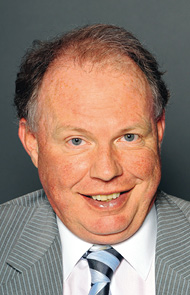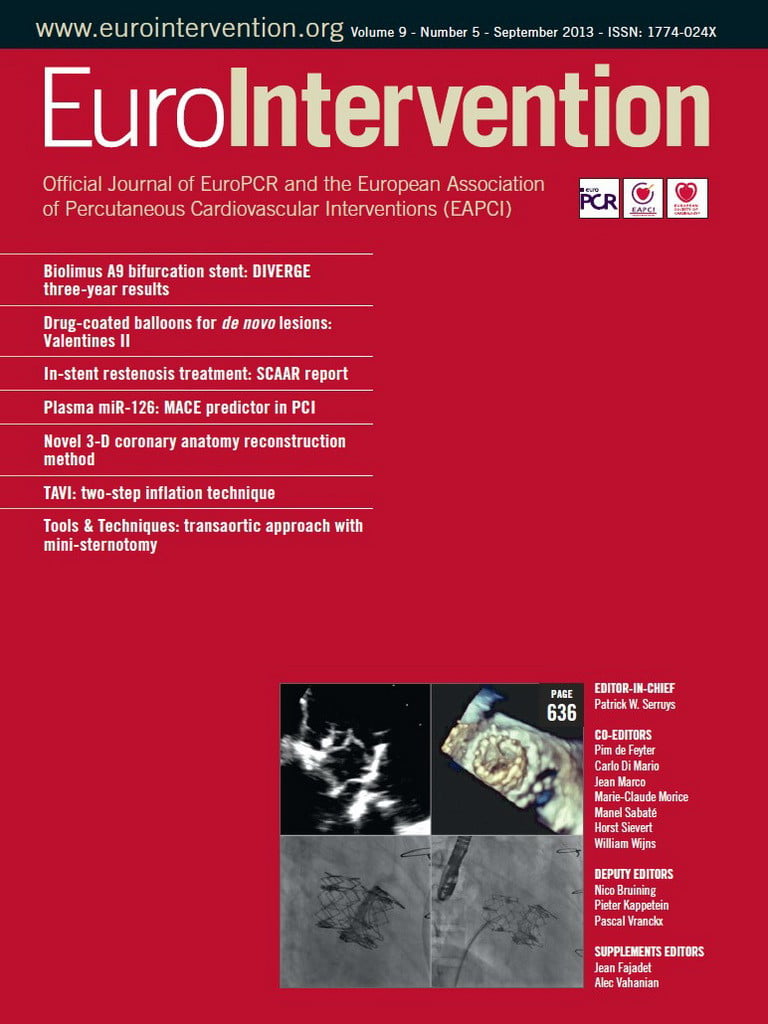NEWS
■Are you an interventionalist younger than 36? Apply for the EAPCI Training and Research Grants programme 2014 before the 15th January 2014 and be awarded €25,000.
■Seeking a new position as an interventional fellow? Are you looking to welcome fellows at your institution? Access the EAPCI CathGo database today!
■EAPCI Interventional Fellows Course: Don’t miss the Krakow course from 27-28 November in Krakow, Poland
■Want to be updated about the EAPCI Young community? Visit the Young Corner on the EAPCI website.
EAPCI Focus on the Working Group on Interventional Cardiology of the Irish Cardiac Society
An interview with the President, David P. Foley
What does the EAPCI membership mean for a national society?
The EAPCI, formed so many years ago now from the old ESC Working Group (WG10), has become increasingly important in our daily practice. Through the development of a common vision for both the EAPCI and the national societies via guidelines, certification and education, we hope to continue to play an important role in its evolution. Naturally, we believe that with support from the EAPCI we can overcome local issues to fulfil our potential as interventionalists in Ireland, despite our small size within the EAPCI family.
What are the current issues related to the national society?
Our Working Group on Interventional Cardiology is allied to the Irish Cardiac Society, which itself is governed by the Royal College of Physicians of Ireland. As its stand no Internal Medicine specialty is large enough to have its own faculty. We are all members of the ICS, which has an annual meeting in October each year and includes interventional sessions. In fact, the ICS also includes cardiac surgery, noting that Ireland is a small country.
Most Irish interventionalists are also general cardiologists or have to encompass some general cardiology as part of their job. This entails taking care of such activities as general cardiology admissions and consultations. Noteworthy is that a large number of cardiologists doing PCI are “general cardiologists” who perform PCI as part of their work but would not fulfil the definition of “Interventionalists” with the full training as well as the requisite fellowships, publication record and a full-time dedicated and broad spectrum of skills as per European practice.
Ireland has nine University Hospitals with interventional activity ranging from 400-1,600 PCIs per annum and there are nine private independent hospitals with varying unpublished volumes of interventional activity. Additionally, some mobile lab facilities are used in four or five district general hospitals.
The main concern for the further professionalisation of our specialty is the lack of a national database and its required administrative support. Whilst realising that after the “Celtic Tiger” boom years, we have sunk back into a very deep recession which has brought with it substantial salary reductions on a personal level and also severe reductions in health care investment. It would seem to me sensible to create a national database to anticipate and manage the limited investment currently being proposed. It has been my personal crusade to realise this goal, but with less receptive health authorities, this has led to frustration. For instance, the most reliable source of data at this moment for national PCI volume data could only be acquired by combing the sales figures of all stent companies in Ireland. Also, the nine private hospitals have no obligation to furnish data to us. It is worth noting that, unlike most of our European counterparts, Ireland does not have a national ID card system or similar, so this aspect is quite challenging for creating a national database.
Despite all this, the quality of patient care is very good in general, it is just not captured on any national database and perhaps, in the years to come, with the creation of this database, we will be able to leave the “EAPCI/ESC National Data Bermuda triangle”.

David Foley, president of the Working Group on Interventional Cardiology (Irish Cardiac Society)
![]()
President: David P. Foley
Past President: Niall Mulvihill
Contact details: [email protected]
Website: www.irishcardiacsociety.com
Upcoming annual meeting: ICS 2013, 3-5 October 2013,Killarney, Co. Kerry, The Republic of Ireland
Founded: 1949 (ICS)
Members: 100 members from 18 institutions
EAPCI members: 23

